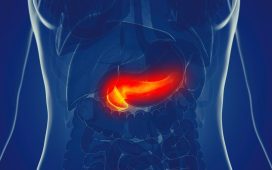Risk assessment for biochemical recurrence improved with addition of PSMA PET N1/M1 status to presurgical Cancer of the Prostate Risk Assessment score
By Elana Gotkine HealthDay Reporter
MONDAY, July 31, 2023 (HealthDay News) — Presurgical 68Ga-prostate-specific membrane antigen positron emission tomography (PSMA-PET) improves prediction of biochemical recurrence-free survival (BCR-FS) for patients with intermediate- to high-risk prostate cancer, according to a study published online July 21 in European Urology.
Lo ¯c Dja ¯leb, M.D., Ph.D., from the David Geffen School of Medicine at the University of California Los Angeles, and colleagues conducted a follow-up study of a surgical cohort assessed in a prospective phase 3 imaging trial involving 277 patients with intermediate- to high-risk prostate cancer treated with radical prostatectomy and pelvic lymph node dissection. The added prognostic value of presurgical PSMA-PET for BCR-FS compared to the presurgical Cancer of the Prostate Risk Assessment (CAPRA) and postsurgical CAPRA-Surgery (CAPRA-S) scores was assessed.
Patients were followed for a median of 32.4 months after surgery; clinical follow-up was available for 240 patients. The researchers found that 91 of 240 BCR events were observed (38 percent). In 17 percent of patients, PSMA-PET extraprostatic disease (N1/M1) was found. Significant univariate predictors of BCR included PSMA-PET prostate uptake, PSMA-PET N1/M1, and CAPRA and CAPRA-S scores. The risk assessment for BCR was significantly improved with the addition of PSMA-PET N1/M1 status to the presurgical CAPRA score compared with the presurgical CAPRA score alone (C-statistic, 0.70 versus 0.63). There was no significant difference observed for the C-index of the postsurgical model utilizing the postsurgical CAPRA-S score alone from the presurgical model combining the presurgical CAPRA score and PSMA-PET N1/M1 status.
“In patients with prostate cancer considered for surgery, PSMA PET can provide information on the risk of recurrence after surgery, before the surgery even happens,” Dja ¯leb said in a statement.
Several authors disclosed ties to the biopharmaceutical industry.
Copyright © 2023 HealthDay. All rights reserved.








